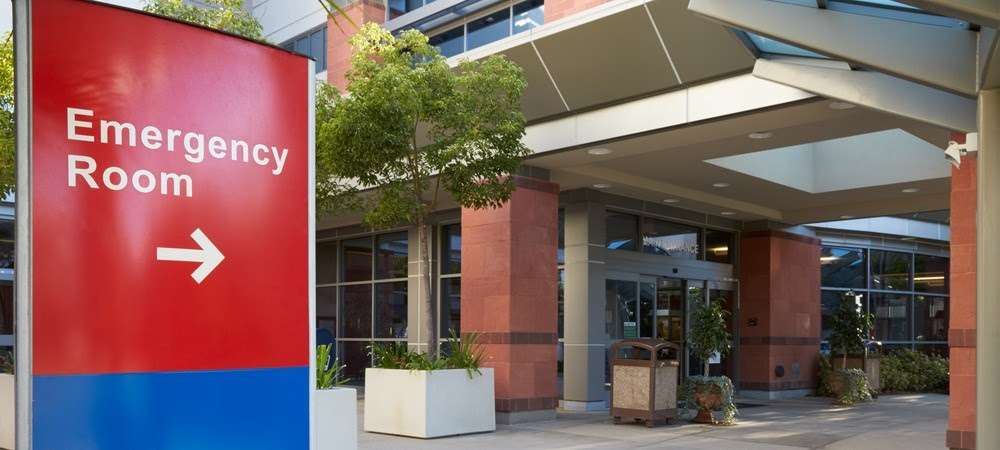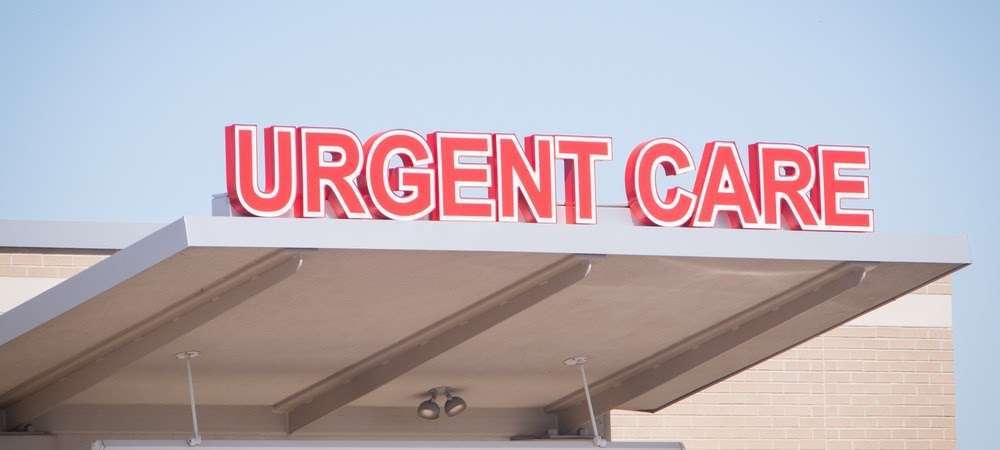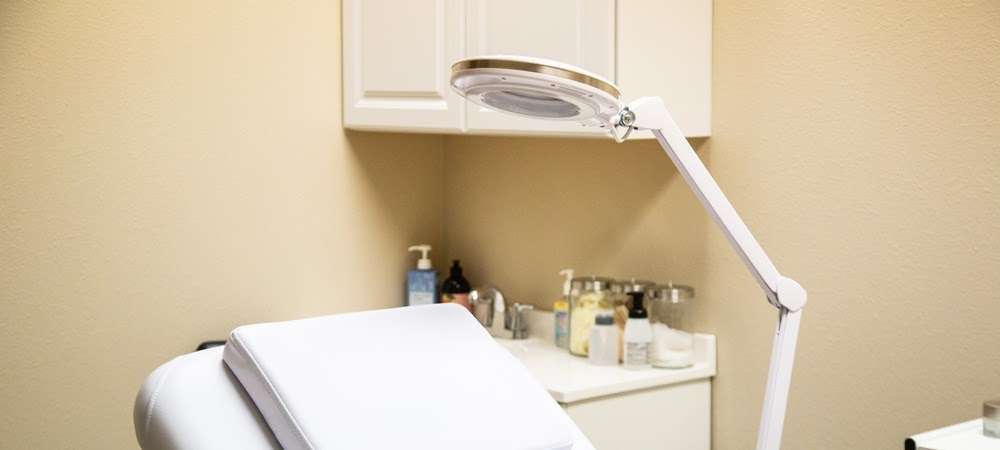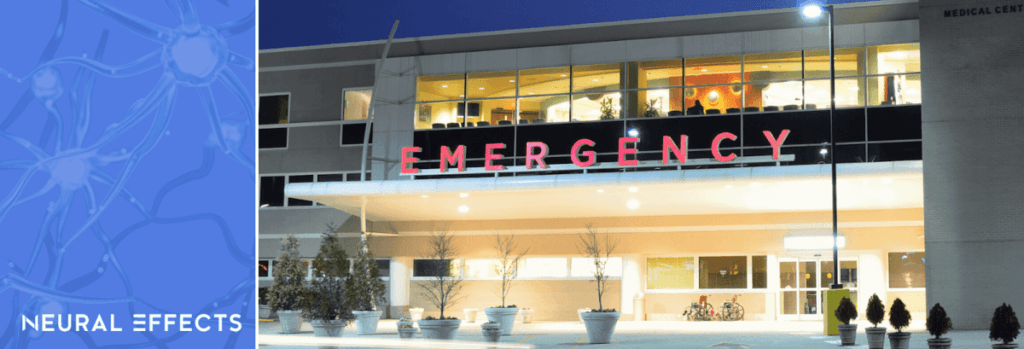When you or someone you know has suffered a brain injury, where you go next for treatment matters. Urgent care and the emergency room (ER) are both popular choices, but how do you know which one to choose in the critical minutes after sustaining an injury?
It all comes down to symptom severity. Just a few weeks ago, I was faced with this very dilemma on my way home from work. I was driving along when I noticed a woman lying on the side of the road next to her bike. She had clearly been in an accident, as evidenced by the scuffs in her helmet and a few scratches on her arms.
Initially, I considered taking her to an urgent care center nearby to get her assessed for concussion. However, I soon realized that she had severe cognitive problems; she couldn’t even tell me her name. I changed courses and went to the ER so that she could get brain imaging done. I’m so glad I did because she had a brain bleed that needed immediate medical attention.
Urgent care clinics are suitable for most patients, but if there’s any chance of a more serious injury, prompt emergency care is the safer choice. A blood clot or bleeding in the brain can be life-threatening, especially if it goes undiagnosed.
That said, the ER is not always the best place to get a concussion diagnosis and appropriate follow-up care. A good concussion clinic can provide better education about your injury and recovery plan.
In this article, we describe three options you have for treatment — the emergency room, urgent care clinics, and concussion clinics — including pros and cons of each one. Hopefully, this will help you make the right decision about where to go to receive the care you need.
For quick decision-making, consult this flowchart:

Use these links to navigate the article if there’s a section you want to read first:
- Should you go to the ER for your head injury?
- Pros and cons of the ER for concussion.
- Should you go to an urgent care clinic for your head injury?
- Pros and cons of an urgent care clinic for concussion.
- Should you go to a concussion clinic for your head injury?
- Pros and cons of a concussion clinic for concussion.
- Questions to ask at the ER or Urgent Care after a head injury
If you live in Provo, Salt Lake City, or anywhere else in the Utah valley area, we can help you recover from your concussion and reduce your chance of long-term symptoms. We are in network for most types of medical insurance. Schedule your evaluation today.
Should I Go to the ER For a Concussion?

Not every bump on the head requires a trip to the ER. Most injuries are minor and resolve themselves within a few days. However, brain trauma can be extremely serious — even if there isn’t any external evidence of an injury. If left unchecked, such injuries may have serious long-term complications or even result in death.
If you’re experiencing any of the following symptoms (or know somebody who is), we recommend that you go to your nearest ER immediately:
- Loss of consciousness
- Becoming confused/disoriented after the injury
- Suffered the injury at high speed (e.g. a car accident or a sports-related injury)
- Vomiting or nausea
- Balance issues
- Memory loss (especially about the injury)
- Seizures
It’s important to note that symptoms may not appear immediately.In the 24 hours after the injury, treat it as a medical emergency if you:
- Experience progressive or worsening symptoms
- Have a headache that won’t go away
- Have seizures
- Vomit multiple times
- Behave in an unusual manner
- Have mood swings, personality changes, or trouble concentrating
- Have slurred speech or problems reading or writing
- Feel numb, dizzy, or weak
- Have difficulty falling asleep or severe drowsiness
- Experience changes in your eyes
- Have discharge of clear fluid or blood from the nose or ears
What Does the ER Do for a Concussion?
When you go to the ER, medical professionals need to assess the severity of your situation quickly. These are some of the questions and tests you can expect:
Information about the injury and symptoms
Your ER doctor will ask a series of questions about the injury. If you can’t answer the questions yourself, bring somebody with you who can help.
Questions may include:
- How did the injury occur? Was it a fall? A car accident?
- Did you lose consciousness?
- If so, for how long?
- Do you have a headache or any other symptoms of a concussion?
- Are you experiencing any changes in alertness, speaking, coordination, or eyesight?
- Did you suffer whiplash?
Glasgow Coma Scale (GCS)
This 15-point scale helps ER doctors quickly assess the initial severity of head trauma. It looks at patients’ mental status — such as their ability to follow instructions and their speech patterns — along with physical cues such as eyesight and coordination. Typically, patients with a mild traumatic brain injury have a GCS score of 13 to 15, which indicates it’s not a severe injury. More severe cases will score lower values, indicating that one or more of the parameters analyzed is seriously affected.
Imaging tests: CT scans and MRIs
Most mild brain injuries don’t require a CT scan, but it’s reassuring to know that if yours does, it is easily accessible while you’re in ER. Typically, doctors will send you for a CT scan if you:
- Suffered a violent injury
- Have a suspected skull fracture
- Scored a low GCS
- Lost consciousness after your injury
- Experience neurologic deficits
- Experience prolonged vomiting
- Have a seizure
- Have severe headaches
- Can’t remember the injury
- Show unusual behavior
CT scans don’t actually show whether you have a concussion or not, but they can be used during the first 24 to 48 hours after an injury to detect skull fractures, bleeding in the brain, blood clots, and brain tissue swelling, which may need surgical intervention.
If the results come back inconclusive, or if it’s been more than 48 hours after the injury, your doctor may recommend that you go for a second imaging test, such as a structural MRI scan. MRIs can detect bleeding or swelling in the brain as well as skull fractures, but unlike CT scans, they don’t expose patients to radiation. While an MRI also cannot diagnose a concussion, it is particularly suited when symptoms persist and patients are not recovering as expected.
Observation
Finally, after all these tests, you may need to be hospitalized overnight for observation. This is more likely to happen if you have a low GCS score or are showing concerning neurological symptoms.
If your healthcare provider feels it’s safe for you to go home, make sure you have a friend or relative stay with you and check your symptoms for at least 24 hours to ensure that your condition isn’t getting worse.
Pros and Cons of Going to the Emergency Department

Undoubtedly, the main advantage of going to your nearest ER is access to imaging tests. This is the only way to detect if you have bleeding in the brain or a skull fracture, which may require surgery as soon as possible to prevent long-term damage. ERs will also have a wide range of medications available and access to specialists to treat other symptoms caused by the injury, if needed.
The downside of going to the ER is the expense. It can be costly to seek healthcare this way, and most insurance companies prefer that you avoid going to ER when possible. Also, most ER doctors don’t specialize in concussions, so they may not follow the latest treatment guidelines or provide necessary follow-up resources for your recovery.
Should I Go to an Urgent Care Clinic for a Concussion?

Most patients with suspected concussions do not need to visit an ER. In fact, a study showed that over 90% of patients going to the ER for a concussion were discharged the same day. These patients could have gone to an urgent care center for treatment and had their concussions diagnosed without expensive imaging. If you are not experiencing any of the symptoms described above, but still want to get medical attention for your brain injury, these same-day clinics can treat a variety of medical problems that need to be assessed right away but that may not constitute an emergency.
What Does an Urgent Care Center Do for Concussion?
Typically, the type of treatment you can expect from an urgent care center is:
- Immediate: Similar to an ER, you can get immediate access to treatment. Urgent care centers typically see patients as close to the time of their brain injury as possible.
- Accessible: Many urgent care centers are open 24/7, including weekends and holidays. (Be sure to check their hours before going.) A significant number of incidents — especially sports-related injuries — occur in the evening or on weekends when doctors’ offices are closed. Unless you are experiencing the severe TBI symptoms described above, your best option for treatment may be an urgent care center.
Once you arrive at the center, a doctor can assess you and ask questions about the injury and your medical history, as well as determine your GCS score. This is identical to the type of assessment done in the ER, minus any brain imaging tests.
Most common treatments for mild concussions include over-the-counter painkillers, as well as anti-nausea and other medication to treat specific symptoms.
Urgent care clinics have procedures in place to rapidly identify high-risk patients with a potentially serious condition. Such patients include those with abnormal behavior, obvious or highly suspicious skull fracture, drug or alcohol intoxication, or GCS less than 15. These patients are promptly referred to the nearest ER for imaging and further treatment.
Pros and Cons of Going to an Urgent Care Center

An urgent care center is easily accessible after your injury and will likely cost less than a trip to ER. The exact amount you need to pay depends on your insurance, but urgent care is often cheaper because these centers typically don’t have as much specialized equipment and staff as a hospital.
That doesn’t mean these centers are not equipped to treat concussion patients. Imaging tests, such as CT scans and MRIs, can be useful for some patients, but these tools are not required for a concussion diagnosis. Avoiding these tests helps keep costs down.
The main issue with urgent care clinics is that their physicians are generalists and may not be as knowledgeable about concussions. This means they may fail to spot potential complications, use appropriate referral procedures, or provide a suitable plan for return to work or school.
Can I Get Immediate Treatment from a Concussion Clinic?

There’s a third option to consider immediately after you’ve sustained a head injury: concussion clinics.
The main issue is that, unlike the ER and urgent care centers, most concussion clinics are not open to walk-in patients. You may or may not be able to see a medical provider the day of your injury. But if you’re not experiencing serious symptoms, you may be able to schedule an appointment within a day or two to get assessed and start treatment.
But if you have any doubts about your injury severity, or your symptoms are getting worse while you’re waiting for your appointment, don’t delay treatment. Go to the ER or an urgent care center to receive immediate medical attention, then follow up with the concussion clinic afterward.
What Does a Concussion Clinic Do for Concussion?
Concussion clinics might incorporate multiple concussion specialists, including neurologists, sports medicine physicians, neuropsychologists, physiatrists, physical therapists, and other specialized therapists. By working together, these specialists can offer a much more comprehensive approach to treating concussion patients. Many of these clinics also help you develop a plan for a phased return to work or school, as well as a return to play assessment for athletes.
Patient assessment and concussion treatment are often more in-depth than those offered at the ER or urgent care clinics.
At Neural Effects, a concussion evaluation is more extensive than what most urgent care or ER doctors provide. Patients start by rating their symptoms from zero (no symptoms) to six (worst possible), allowing our therapists to understand what systems were most affected by the brain injury. For more severe cases, our therapists may decide to order a CT scan or an MRI to rule out bleeding or swelling in the brain or skull fractures. Patients also undergo a series of exams, including a cranial nerve and a cervical spine exam, as well as a balance assessment. Based on the results of these tests, we can design a treatment plan to suit your needs.

Typically, patients receive three one-hour sessions per week for two weeks, but this can be adjusted to the patients’ needs. Each session includes cardio exercises and breathing techniques, combined with vestibular, vision, neuromuscular, and cognitive therapy. Together, they help restore healthy brain function and brain-body coordination. In a typical session:
- We guide patients through cardio exercise on a treadmill or stationary bike. The aim is to raise your heart rate to improve blood flow in the brain without triggering any of your symptoms. You can read more here about how physical activity helps patients recover.
- We teach all our patients breathing techniques that can be used during treatment and at home.
- We employ vestibular therapy to alleviate symptoms such as vertigo and dizziness.
- We use vision therapy to address symptoms like blurry vision and light sensitivity.
- Our therapists use neuromuscular therapy to retrain your muscles and brain to communicate with each other to improve movement, strength, and balance. Patients learn a variety of exercises, including balancing on a Bosu ball while playing a memory game or hitting targets with lights in random patterns to improve reaction time.
- We use cognitive therapy, in which patients do exercises such as finding hidden patterns or memorizing images.
After each session, we give you a series of exercises to do at home, including cardio, cognitive exercises, and breathing techniques. Doing these exercises gives you a better chance of a complete recovery.
Pros and Cons of Going to a Concussion Clinic

If you’re looking for specialized treatment for your concussion, the best place to go is a concussion clinic. Unlike ER and urgent care doctors, physicians and therapists working at a concussion clinic are trained specifically in rehabilitating mild traumatic brain injuries, and they can offer you the best treatment available.
The downside is that it may be difficult to see a doctor immediately unless you can find a walk-in clinic. Most concussion clinics work by appointment only and can’t see patients on short notice. At Neural Effects, we can typically see patients within a day of their injury as long as they contact us immediately.
Because concussion clinics are only open during business hours, they are not an option if you need treatment at night or on the weekend. You can, however, visit them after seeing an ER or urgent care doctor.
Our Recommendation

The best course of action when you sustain a brain injury depends on the severity of your injury.
If you have severe symptoms such as nausea, vomiting, loss of consciousness, balance problems/dizziness, and confusion, we recommend that you visit the ER. Also, if the concussed patient is a young baby or the manner in which the injury occurred was violent, like a car accident at high speed, it may also be advisable to go to the ER.
In contrast, if you’re not experiencing any of these symptoms, it’s still important to seek medical advice, but it doesn’t have to be in an ER setting. In this case, an urgent care center may be sufficient.
If you’re looking for specialized treatment, a concussion clinic is the place to be, but it may be difficult to find a walk-in clinic to give you immediate treatment after your concussion. In this case, our advice is not to delay treatment if you have to wait for an appointment. Seek medical advice at an ER or urgent care center instead for immediate attention, and then transition to a concussion clinic like Neural Effects for more specialized treatment as soon as you can.
If you live in Provo, Salt Lake City, or anywhere else in the Utah valley area, we can help you recover from your concussion and reduce your chance of long-term symptoms. We are in network for most types of medical insurance. Schedule your evaluation today.
Questions to Ask Your ER or Urgent Care Doctor
What kind of aftercare is available for me?
If you arrive at an ER having just suffered a brain injury, you will get immediate care for what could be a potentially life-threatening situation. Doctors will use a variety of ways to detect any serious conditions which need urgent treatment, such as a fractured skull or a brain bleed.
After the initial treatment, while you will be relieved to know that the danger of developing a brain bleed or any other potentially fatal condition is under control, you may have a series of other symptoms that still need medical attention after you’ve left the ER.
This is when you need aftercare. However, while ER doctors are very good at focusing on life-threatening conditions, they often fail to educate concussion patients or provide aftercare for them. Ongoing treatment is vital in the management of any patient with a head injury, and you should ask what kind of aftercare is available for you. At the very least, you should receive clear instructions regarding warning symptoms once you go home and get access to follow-up medical care if needed.
Can I get referred to a concussion clinic?
A referral process from the ER or urgent care centers is becoming more frequent, but there are still many patients who miss out on treatment because they’re never informed about concussion clinics. Our advice is to be up-front about it and ask about being referred to a concussion clinic.
Referral is often appropriate for patients who experience:
- Dizziness, balance problems, and nausea lasting more than a few days after the injury.
- Prolonged difficulty with concentration, memory, dizziness, and difficulty sleeping for weeks after injury.
- Extended recovery from a prior concussion.
- Migraine, attention deficits, or other learning challenges.
Curiously, a study showed that although more than 80% of ER doctors felt that referring concussion patients for specialized treatment played an important role in concussion management, only about 20% actually referred their patients to concussion clinics.
The main problem is that some doctors are still reluctant to officially diagnose patients with a concussion. CT scans and MRIs are extremely useful to detect bleeding or swelling in the brain and skull fractures, but it doesn’t actually “see” concussions. Diagnosis relies on symptoms described by patients, which are always subjective.
For the doctors who use the referral system, their decision is often based on aspects like symptom duration and severity. Curiously, symptoms related to poor balance or vestibular issues are less likely to elicit a referral, despite their association with longer recovery times for concussion patients.
Sadly, it’s important to note that many ER and urgent care doctors experience barriers to patient referral that are beyond their control, including lack of insurance, no availability for appointments, and distant location. However, as the use of telehealth becomes more popular, it could present an opportunity to improve appointment availability and eliminate location as a deterrent to referrals.
If you live in Provo, Salt Lake City, or anywhere else in the Utah valley area, we can help you recover from your concussion and reduce your chance of long-term symptoms. We are in network for most types of medical insurance. Schedule your evaluation today.
